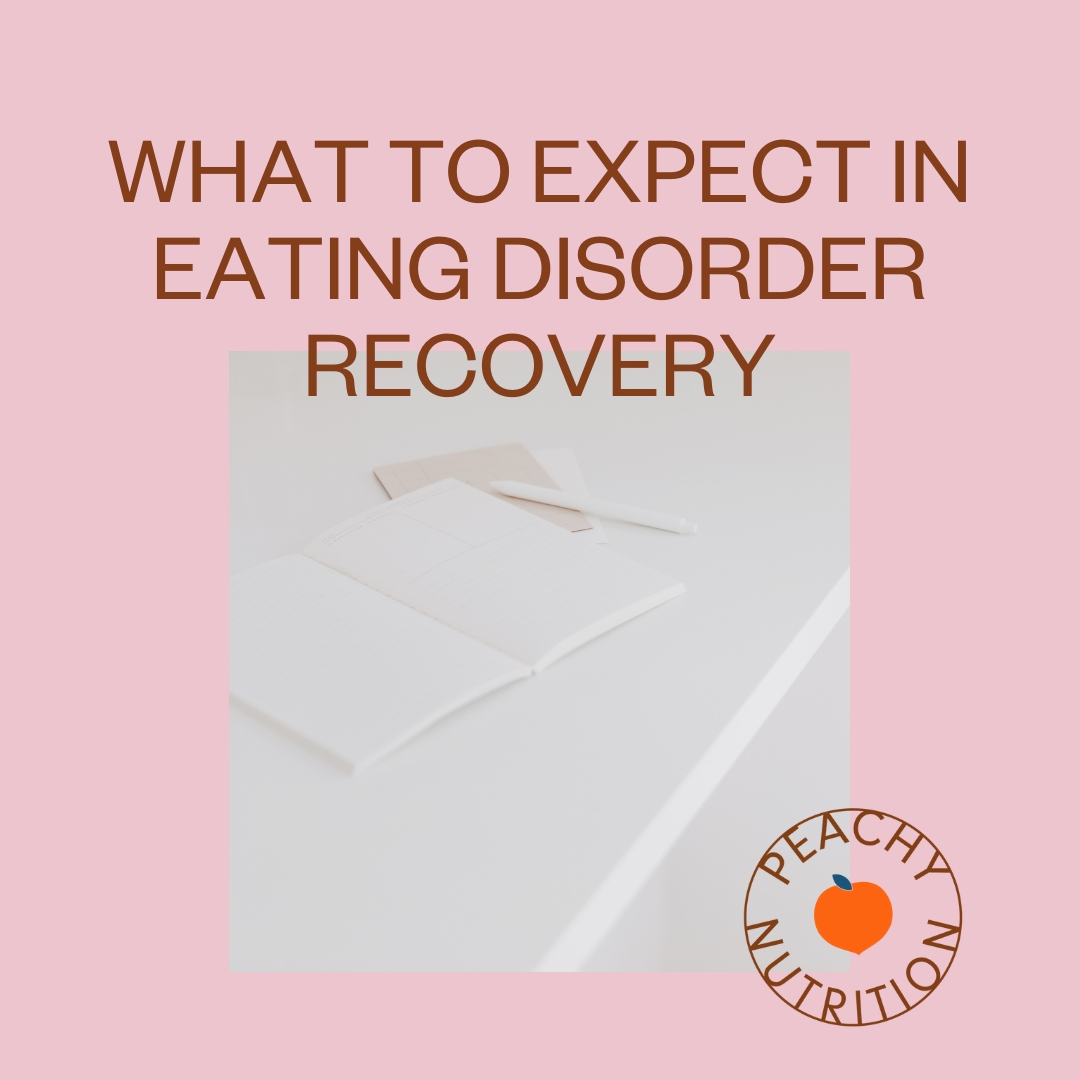Eating disorder recovery can often feel like looking into the abyss. It may be hard to imagine what lays on the other side or to conceive that the other side even exists.
Eating disorders take many different shapes and forms, but the root of most eating disorders is restriction. This includes binge eating disorder, anorexia, and bulimia nervosa. In a period of restriction, your body will make the changes necessary to survive. Some of the changes include slow or fast heart rate, abnormal labs, loss of hair, fatigue or difficulty focusing, lanugo (fine facial hair on face and body), and gastrointestinal issues such as gastroparesis (slow digestion of food) and constipation.
Since our bodies want to survive, often they will adapt to these changes. Sometimes, after a period of restrictive or eating disorder behaviors, you may still get “normal” labs or EKGs back. This does not mean that all is well – it could just be that your body is surviving … not thriving.
The refeeding phase of eating disorder recovery
So, what is the refeeding process? The refeeding process is the period between restriction and “normalized” eating. This stage can often be uncomfortable both physically and emotionally. It can be helpful to know what to expect in this period to avoid fear or reverting to old behaviors for “safety”.
In the initial stage of refeeding, your body will take the increased energy and immediately put it to work. The metabolic rate will increase as you nourish your body adequately. Your body is using this fuel to restore function to vital organs. Your body may gain water weight to achieve normal hydration. Restrictive eating will slow down the emptying of the stomach which can lead to nausea, gastroparesis, and constipation. Often, fullness can be experienced with a smaller amount of food. It is common to experience both hunger and excessive fullness at this point.
The weight restoration phase of refeeding
During the weight restoration phase of refeeding, three types of weight restoration occur: rehydrating the body, lean body mass, and body fat. The body fat part is often the most feared, but it is only part of the equation and occurs slowly. Appetite changes continue to vary from lack of appetite and prolonged fullness to insatiable hunger. Hunger signals can be intense and unreliable during this stage. With the unpredictability of this stage, eating disorder thoughts/behaviors often intensify to try to lead you back to “safety”. It is important to process thoughts and fears in this stage and to be open to information from clinicians to help put things into context. Being able to tolerate uncertainty is a vital skill in the recovery process.
Research shows that weight restoration will often occur in the abdomen first. This is a biological adaptation to protect and separate our vital organs. Research also shows no significant difference in shape between someone recovering from an eating disorder after one year and those who have never had an eating disorder, so weight does redistribute to normal proportions over time. At the end of the restoration period, one may experience fullness before eating and fewer episodes of hunger. This period can feel like a loss or a great sense of relief. People find that rarely the weight restoration is as bad as expected to be, given the eating disorder thrives on the fear of the unknown. Body image can be unstable in this stage.
What to expect in the weight maintenance phase of eating disorder recovery
When a healthy weight is achieved, the meal plan will be adjusted to support weight maintenance. Nutritional needs and metabolic rate can be elevated for up to 12 months after refeeding so comparing food to others is not a fair comparison. Body “tone” or muscle can now start to rebuild and many report weight redistribution within six months. Hunger cues may not be fully reliable so it is best to stick to a meal plan until an alternative is approved by a dietitian. The main goals of this stage are to reduce the intensity of response to fullness, perceived and actual weight gain, and concerns about hunger. Emotionally, it feels nice to return to a sense of “normalcy” with food but also it can feel like a loss of identity and takes time to redefine yourself outside of the eating disorder.
Eating disorder recovery happens one day at a time.
It is important to check in and process thoughts and emotions with your team and support systems during the refeeding and recovery process. Recovery happens one day at a time and one bite at a time and recovery is never linear. Practice self-compassion on the tough days and reach out for support. Just like no one can tell you the exact day your body will recover, no one can tell you the day your mind will recover. Despite the uncertainties during the process, always know that you are capable and worthy of recovery.
